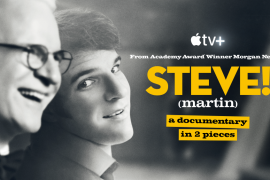Way back in the early ’50s, when CBC first began broadcasting NHL games on Hockey Night in Canada, a friendly service station dealer would greet viewers between periods.
He was played, for 16 years, by Murray Westgate. The man became an iconic figure in Canadian television, mainly thanks to these ads.
I spotted a few tweets yesterday suggesting Murray must be “spinning in his grave” over CBC’s loss of NHL rights in Tuesday’s blockbuster Rogers deal.
Turns out the Saskatchewan native, very active in the early days of Canadian television, is still with us–at least as far as I can tell on the Internet. He’s 95 according to the sources I’ve found.
Obits for CBC may be premature, too. Count me as one who doesn’t believe the knee jerk, doom and gloom prognosis for the public broadcaster. Losing hockey, in fact, may be the break CBC has needed for years.
It is true that CBC is losing a very valuable asset. Live sports is the last great draw in prime time television. Viewers watch sports in real time, meaning commercials are actually being screened, not scanned. Rogers knows hockey is a bigger draw in Canada than even football is in the United States, and the NFL is now the biggest draw south of the border.
Times have changed, however, since CBC was the eyes and ears of Canada. Even in remote regions, viewers can watch all kinds of content on a variety of devices. They don’t need one network to try and be their Sportsnet, Discovery, History, CNN, AMC, FX and HBO. They can just watch or stream all those channels.
CBC has an opportunity now to try and be what those channels are not–a true public broadcaster. That debate about Canada being left out of this so-called “Golden Age” of Breaking Bad, Mad Men and other edgy cable fare? Private, commercial networks will never commission those kind of challenging, niche shows in Canada because they simply do not draw enough viewers to come anywhere close to covering their cost. Lord knows Rogers isn’t going to invest much in Canadian scripted fare in the next 12 years–all their money is tied up in hockey.
CBC, however, could open their doors to Canada’s top creative talent in much the same way as BBC commissions excellent, limited run series such as Sherlock.
A new CBC cannot aim to just be a prestige programmer. The incredible success of Murdoch Mysteries since joining CBC two seasons ago proves mass viewers will return to the network, despite tough competition, for compelling stories and actors they want to watch. A public broadcaster can serve the masses as well as those who like their dramas dark and edgy.
Maybe, eventually–as my pal Slawko Klymkiw keeps telling me from his safe seat over at the Canadian Film Centre–CBC gets out of the commercial business altogether. As someone who has argued for years that CBC is in the business of television in North America and has to behave that way, I’m slowly coming around to his thinking. PBS still can draw a crowd with their content, albeit more so with special anniversary programming such as their recent obsession with the Kennedy assassination. Still, when the content is there, people come back.
PBS does it with a lot less money from their federal government. They depend on corporate underwriting, endowments from individuals and arts groups and people like you.
The new and current stewards at CBC have to find a way to blow up what has for years been a suffocating infrastructure, drastically reduce their bureaucracy and get more of their generous appropriation into the hands of Canada’s storytellers.
It won’t be easy, and it will take years. Politicians have to help, not hinder. Time to check the tires and look under the hood. As ol’ Murray would say, “Happy motoring, Canada.”








